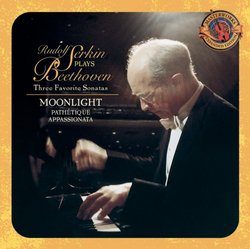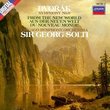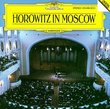| All Artists: Ludwig van Beethoven, Rudolf Serkin Title: Rudolf Serkin Plays Beethoven Members Wishing: 0 Total Copies: 0 Label: Sony Original Release Date: 1/1/2003 Re-Release Date: 9/30/2003 Album Type: Extra tracks, Original recording remastered Genre: Classical Styles: Forms & Genres, Sonatas, Historical Periods, Classical (c.1770-1830), Romantic (c.1820-1910), Symphonies Number of Discs: 1 SwapaCD Credits: 1 UPC: 827969039526 |
Search - Ludwig van Beethoven, Rudolf Serkin :: Rudolf Serkin Plays Beethoven
 | Ludwig van Beethoven, Rudolf Serkin Rudolf Serkin Plays Beethoven Genre: Classical
|
Larger Image |
CD DetailsSimilarly Requested CDs |
CD ReviewsIndiana Jones and the Lost Treasure of Overpleyed Beethoven Jon. Yungkans | Whittier, CA USA | 04/22/2005 (5 out of 5 stars) "Looking nothing like Harrison Ford, sans bullwhip, revolver or well-worn fedora (though at one time he did have to flee the Nazis in haste), Rudolf Serkin nevertheless shared with Indiana Jones a doggedness in finding the most sacred and valuable treasures in his field. Like Jones, Serkin's search took him to far-flung regions, from Bach to Bartók and Prokofiev. And like Jones, Serkin sometimes unearthed those lost-Ark-like riches before our very noses, in areas that would seem mined and plundered to utter exhaustion. Take the Moonlight Sonata, in most people's minds as synonymous to Beethoven as the first four notes of the Fifth Symphony, and reduced from innovative to mindless feel-good music by relentless repetition. There is no feel-good here. The moonlight on the calm surface of Lake Lucerne veils a bevy of turgid currents and an undertow that would pull a swimmer straight to the bottom. If Beethoven meant to progress from dreaming to waking, then raging, in the Moonlight's three movements, then Serkin sets up that explosive ending from the opening bars, for the moonlight here shines on a dark and troubled slumber. But those threatening undertones remain just that - hinted instead of overstated, mysterious instead of crushingly tragic - adding to what we easily forget is a complex interplay of nuance and subtle conflict. Likewise, the Pathétique - Beethoven's nickname for this sonata, and one that the liner notes point out implies a much deeper pathos than the English word "pathetic" - becomes not just a titanic struggle, but also a continually developing and burgeoning dialogue - sometimes imploring, sometimes attempting to reason, but always in flux and never occupying a single level of feeling. Serkin lets these complexities show clearly, neither highlighting nor simplifying them, but focusing on their constant interplay and letting them stand subtly but highly effectively on their own from there. Even in the Andante cantabile, what some would call a strange or undue voicing of chords is the pianist's quiet emphasis on the shadows in this conflict still ready to overwhelm at any time, making the movement not a sunny interlude but a gentle and very temporary truce. The Appassionata was a Serkin specialty throughout most of his career (it was the pianist's first recording, made in London in 1938 and featured in the Serkin volume of Philips' Great Pianists of the 20th Century compilation), and anyone who thought of him as just an overly literal brainiac would do well to listen here. As in all the works, there is not only passion but febrile electricity and a precipitous sense of danger that threatens to explode at any time. In the Appassionata it does - frequently and in the least expected places. The constant and constantly changing discourse of warring elements is still present, but something more elemental and riskier has been added, as though lives are literally on the line now. The bonus tracks are almost worth the price of the disc on its own. Serkin's Les Adieux was recorded live in Carnegie Hall 16 years after the other compositions, and, while it does not yield anything less in voltage, it is probably the most refined and subtlest playing of the disc, with gradations and hues of emotional intricacy that few others have captured. Repeated hearings make you appreciate these subtleties and the overall depth of Serkin's playing even more, and show how well-deserved the ovation at the end of this piece really was. Could a two-disc set of Serkin late Beethoven sonatas be not far behind? Hopefully so. He recorded Op 101, the Hammerklavier and the final three sonatas, and having them in a two-disc remastered package would be a welcome addition to this fine release. " Revelatory Hank Drake | Cleveland, OH United States | 05/06/2007 (5 out of 5 stars) "For those accustomed to hearing Beethoven as played by Schnabel, Kempff, or Brendel, these performances will come as a splash of cold water across the face. Serkin was unconcerned with niceties of tone, color, or pianistic perfection. He famously described Arturo Toscanini's interpretive philosophy as "architecture with passion," and the same could be said of Serkin's approach. His vision was to reveal the structure--both emotional and musical--of Beethoven's masterpieces. To put it bluntly, Serkin could be a little rough: chords are sometimes pounded, scales are occasionally uneven, he hums, grunts, and he stomps on the pedal (once, when playing with the Cleveland Orchestra, he knocked the lyre mechanism off the piano). But Beethoven himself was known for brutalizing the pianos of his day, and the composer's fighting spirit is in these performances in a way seldom heard elsewhere. Serkin is most successful in the "big" Sonatas: The finale of the Appassionata scorches with rage, the last movement of the Moonlight is a blitz, and the Les Adieux is exultant. Less successful is the Pathetique, with a questionable interpretation of Beethoven's first movement repeat sign, and some poor chord weighting in the Andante cantabile. Except for the Les Adieux, all of the performances here are studio recordings. The sound will be a bit dry and hard for most tastes. Nevertheless, the remastering is a considerable improvement over earlier issues. " Crank up the volume Eloi | Ely, NV USA | 11/05/2007 (5 out of 5 stars) "Looking for the ultimate performance of opus 57, the "Appassionata" sonata? Pay dirt! I'm buying this CD to get op. 81a (a live performance, not too well recorded but still worth listening to), but the samples don't lie. I own the original Columbia LP and CD reissue.
I've heard legacy recordings by Cortot and Schnabel and flashier recent performances and this one shines. I think it's the sharply accented arpeggiated chord that leads into the last movement of op 57 that sets up expectations for driving rhythm, and Serkin doesn't disappoint. He takes both repeats and they just play into the most thrilling performance available of Beethovens grandest sonata. Serkin stayed on stage a little too long, and audiences who heard him in his later years might not be prepared for such virtuosity. Serkin was in his prime when he made this recording, and the last movement of the Moonshine sonata is also amazing. Fingers of steel!" |

 Track Listings (12) - Disc #1
Track Listings (12) - Disc #1






